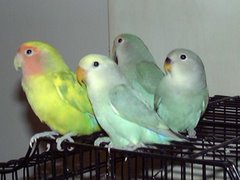Top ten winter management tips for pet birds
Here are ten essential winter management tips for keeping your pet birds healthy and comfortable during the colder months:
Temperature Control - Maintain a consistent room temperature between 65-75°F (18-24°C). Avoid placing cages near drafty windows, doors, or heating vents where temperature fluctuations can stress your bird.
Humidity Levels - Indoor heating dries the air significantly. Use a humidifier to keep humidity around 40-60%, which helps prevent respiratory issues and keeps feathers and skin healthy. You can also lightly mist your bird with lukewarm water a few times per week.
Lighting Schedule - Provide 10-12 hours of natural or full-spectrum light daily. Consider a timer for consistency, as shorter winter days can affect your bird's circadian rhythm and mood.
Nutrition Boost - Birds may need slightly more calories in winter if your home is cooler. Offer a balanced diet with fresh vegetables, quality pellets, and healthy seeds. Warm foods like cooked grains or vegetables can be comforting treats.
Bathing Opportunities - Continue offering baths but ensure the room is warm and draft-free. Some birds enjoy bathing in shallow warm water or being gently misted. Always allow them to dry completely in a warm area.
Monitor Behavior - Watch for signs of cold stress like fluffed feathers (when not sleeping), shivering, lethargy, or huddling. These indicate your bird needs a warmer environment.
Cover at Night - Use a breathable cage cover to retain warmth and create a cozy sleeping environment, but ensure adequate ventilation. Never use heavy blankets that restrict airflow.
Exercise and Enrichment - Birds may be less active in winter. Encourage movement with new toys, foraging activities, and supervised out-of-cage time to prevent boredom and maintain physical health.
Avoid Sudden Changes - Don't move birds between very warm and cold areas. If transporting your bird outside, use a carrier with insulated covers and warm it in your car beforehand.
Emergency Heating - Keep a heating pad (on low, wrapped in towels) or a safe bird-specific heating perch available for very cold nights or if your heating system fails. Always supervise heated accessories.
Your bird's specific needs may vary by species, so consult with an avian veterinarian if you have concerns about your particular bird's winter care.








 Free Ads For Bloggers
Free Ads For Bloggers

